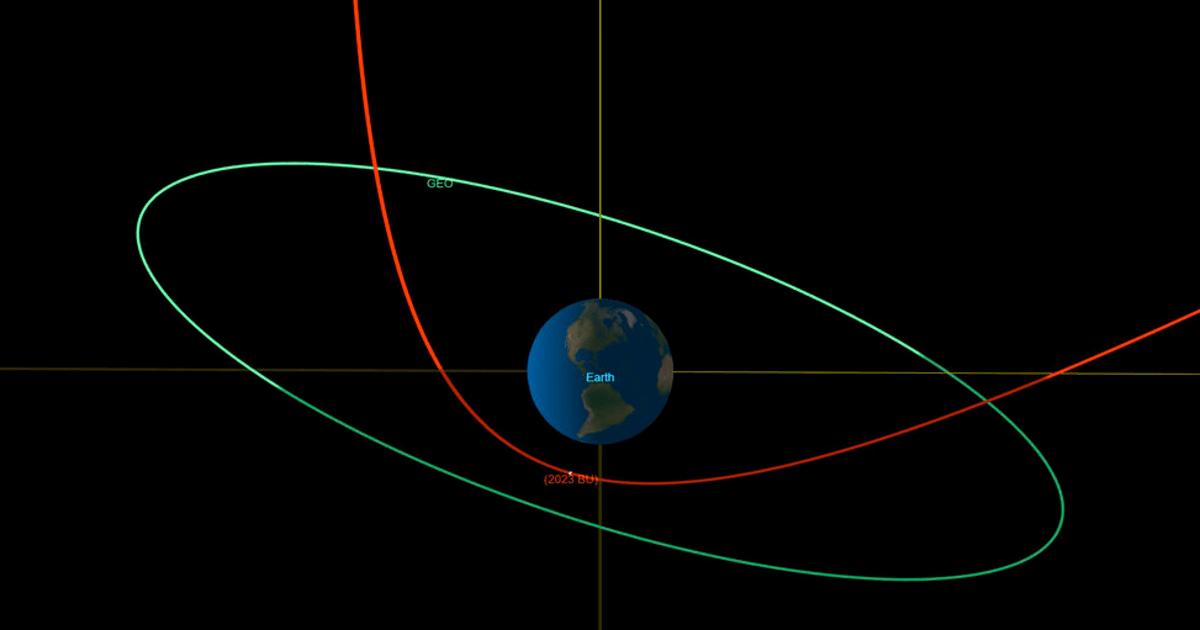By Marcia Dunn -
The Associated Press
A truck-sized asteroid will pass extraordinarily close to Earth on Thursday night, in one of the closest ever recorded encounters of our planet with space rocks.
The Space Administration (NASA) has insisted that it is impossible for this asteroid, named 2023 BU, to hit Earth.
But his career causes some suspicion.
This NASA diagram shows the estimated path of the asteroid, in red, affected by Earth's gravity.NASA/JPL-Caltech via AP
NASA said Wednesday that the newly discovered asteroid will pass about 2,200 miles (3,600 kilometers) above the southern tip of South America.
That equates to 10 times closer than the communication satellites orbiting the planet.
The closest time will be at 7:27 p.m. (Eastern Time).
NASA scientists explained that if it got closer than expected, the rock would catch fire as it entered the atmosphere.
In its disintegration process, the largest pieces could fall as meteorites.
[NASA captures the sound of a dust swirl on Mars for the first time]
NASA's impact risk assessment system (Scout) ruled out a collision, according to its manager, David Farnocchia, of the Jet Propulsion Laboratory in Pasadena, California.
"But despite very few observations, he was able to predict that the asteroid will come extraordinarily close to Earth," Farnocchia said in a statement.
"In fact, it's one of the times that a known target comes closest to Earth," she said.
NASA discovers an exoplanet that is very similar to Earth
Jan 12, 202300:21
2023 BU was discovered on Saturday and is believed to be between 11 and 28 feet across (3.5 to 8.5 meters).
It was initially detected by Gennady Borisov, the same amateur astronomer in Crimea who discovered an interstellar comet in 2019.
In a matter of days, astronomers from around the world made dozens of observations, allowing them to refine their calculations.
Its trajectory will be drastically altered by Earth's gravity when it approaches: instead of going around the Sun every 359 days, it will move in an oval orbit that will last 425 days, NASA explained.

